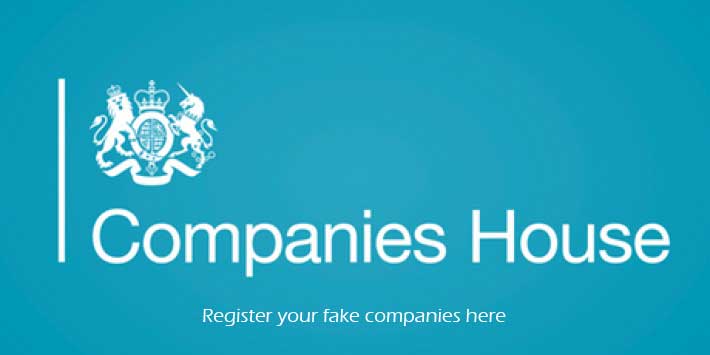A businessman registered a company to former business secretary “Vince Cable” to highlight how easy it is for criminals to lodge false details with Companies House, has been fined for deliberately falsifying information.
Company director Kevin Brewer, instead of being praised for highlighting the obvious flaws in the companies house website, was ordered to pay over £12,000 after pleading guilty to filing false information on the UK’s company register.
However, critics have labelled it a “pyrrhic victory”, as Brewer claims to have taken the action to highlight a loophole in the UK’s corporate registry. Instead, he became the first person to be prosecuted in the UK for falsifying filings.
Accountants have previously expressed concern at the ambiguity in anti-money laundering regulations that allows criminals to incorporate and easily set up any bogus business directly with Companies House.
Two’s company
Brewer, the owner of Birmingham-based consultancy National Business Register, concocted the stunt to prove that anyone could form a fake company in the UK, giving any name or address they wished, which could then clearly be used for illegal or illicit purposes. Using the Companies House online service he paid £12 each to register two fake companies.
First, in 2013 he registered John Vincent Cable Services Ltd on Companies House, making former Business Secretary Vince Cable a director and shareholder without his knowledge.
Brewer then claims to have written to Cable to inform him of the loophole and the company was dissolved and taken off the company register. Brewer also publicised this via an article in the Mirror.
After perceiving no action being taken to resolve the issue he formed another company in 2016, Cleverly Clogs Ltd, making Baroness Neville-Rolfe – the Minister with responsibility for Companies House – James Cleverly MP and an imaginary Israeli national, Ibrahim Aman, all directors and shareholders without their knowledge.
Again, Brewer claims to have informed the government of his actions and the reasons behind them. This time Companies House dissolved the company, took it off the company register and instead of taking steps to fix the problem, prosecuted him under section 1112 of the Companies Act 2006, which sets out the criminal offence of providing false information on the company register.
Brewer pleaded guilty at a hearing at Redditch Magistrates’ Court and was fined £1,602, ordered to pay costs of £10,462.50 and charged a victim surcharge of £160.
‘Right to take action’
Vince Cable, now Liberal Democrat leader, told the Financial Times the punishment seemed “heavy-handed”, but added that Companies House was right to take action against the fraudulent use of names, which is a “growing concern”.
Baroness Neville-Rolfe told the FT the first she heard of the matter was when she received a letter at her private address informing her of her new directorship, and she felt it was a “pretty serious” matter. “It’s not a very pleasant thing to happen to you,” said Neville-Rolfe, “and I felt it was fair enough to assist in the prosecution.”
A Companies House spokesperson claimed that its records were under “constant scrutiny” by law enforcement agencies, and were a “powerful tool for identifying inaccurate or fraudulent information”. If this were true, then one has to ask how it could be possible then, to so easily register a fake company with fraudulent information.
The spokesperson also said that Brewer had been warned not to proceed with the registrations and reminded of the law, presumably because they did not want this massive flaw in their system being brought to public attention.
Prosecution ‘beyond comprehension’
However, the prosecution has been labelled by one commentator as a “pyrrhic victory”. For Richard Osborne, managing director of eFiling (and founder of UK Business Forums), the case exposed the sheer incompetence of the system, which makes Companies House, and the UK, a playground for real criminals.
“The government’s excuse was that he [Brewer] founded those companies with the intention of making a profit off the back of the ministers’ names. Why makes no sense, as why would he do that and then write to the ministers involved telling them what he had done and asking for a meeting to highlight the problems? This is clearly a very lame attempt at coverup and is beyond comprehension.
“The government’s press release basically vindicates their line on not changing the legislation and keeping the system open for criminal activities. Out of all the 4,000 beneficial owners of companies who are under the age of two, and the thousands of registered companies that Transparency International has linked to fraud, they chose only to prosecute and silence the one person who made his actions public and wrote to them in an effort to fix the broken system”.
The fact that Mr Brewer is the only person ever prosecuted for falsifying information, and that no action has ever been taken against any actual criminals, certainly makes you wonder what ulterior motives are at play here and who exactly may be profiting from it.
Almost 700,000 companies are created each year in the UK. A recent report from Transparency International flagged that Companies House currently has only six members of staff responsible for policing the 4m UK companies current registered, while Global Witness claims that almost a tenth of registered companies had broken UK rules by failing to name their controlling shareholders.
This is a stark warning to anyone that uses Companies house data to verify the validity of a registered company, any registered company could easily be fake and fraudulent.








